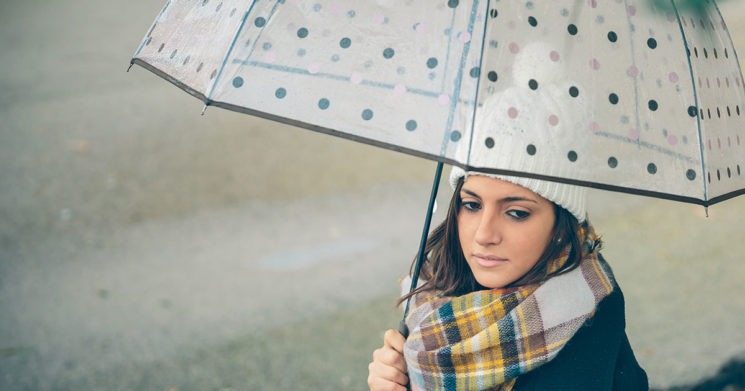Call us today on 1300 252 748 or email us!

While most would agree that Queensland’s winter is a mild one in comparison to other locations around our country, it can still get pretty cold, wet and miserable.
Some regional centres regularly drop to minimums in the single digits and even at times heads in to the negative territories. We also usually think of our winter months as dry months but, on average, we will still see rainfall on over twenty days throughout winter.
This is when the cold and wet can play havoc with your hearing aids but these tips can help ensure you get the best out of your devices.
There’s nothing worse for your hearing devices and their batteries than a bit of moisture. While many new devices come with excellent water resistance it is always better to be sure than sorry.
In winter we often move from one temperature extreme to another and this can cause condensation inside your hearing aid including in the battery compartment.
Before you turn your hearing devices off at night, make sure to check them over for any moisture, including inside the battery compartment. Dry your device and any batteries with a soft dry cloth.
If you have a Behind-The-Ear style hearing aid with tubes, ensure you remove any moisture in the tubes as well. Remove the tube from the hearing aid and blow air through it to remove the moisture. You can use a can of compressed air available from stationery supply stores to do this as well.
One last point, always ensure you dry your ears really well after a shower or a swim before you insert your hearing aids. This can go a long way towards minimising the risk of damage to your hearing aids.
This is a relatively inexpensive piece of equipment that will get rid of any moisture in your hearing aids overnight while you sleep. You simply pop your hearing aids into the small dehumidifying box when you go to bed and it goes to work drawing out any moisture present in your hearing aids.
In a pinch, the old trick of placing your hearing aid in a bag of clean, dry uncooked rice may also work as the rice will absorb any moisture present in the device.
It’s so frustrating when hearing aids don’t work. Even more frustrating when you are not quite sure what’s wrong with them. Is it the battery? Is something blocking the microphone? Have they been moisture damaged?
Do some trouble shooting with some new dry batteries, replace the wax guards and ensure there is no wax or dust clogging the mic or vent. If they still don’t work or only work intermittently then head straight to your audiologist to have them looked at and repaired if need be.
Return to News List
Brisbane: Bribie Island, Carindale, Carseldine, Caboolture, Clayfield, Loganholme, Spring Hill, Sunnybank Hills
Ipswich: Booval
Gold Coast: Helensvale
Townsville: Hermit Park, Condon
Mackay: North Mackay
Regional Queensland: Ayr, Barcaldine, Bowen, Charleville, Charters Towers, Clermont, Emerald, Gladstone, Hughenden, Ingham, Longreach, Mitchell, Mt Isa, Palm Island, Proserpine, Quilpie, Richmond, Rockhampton, Roma, Sarina